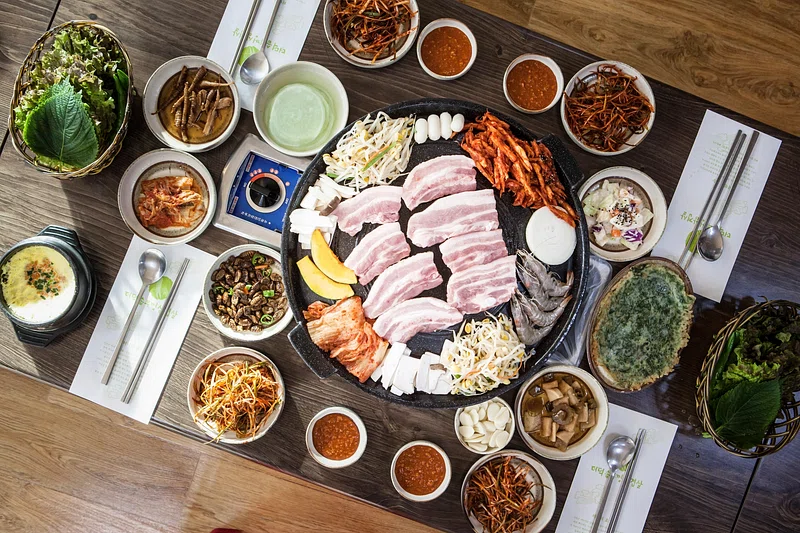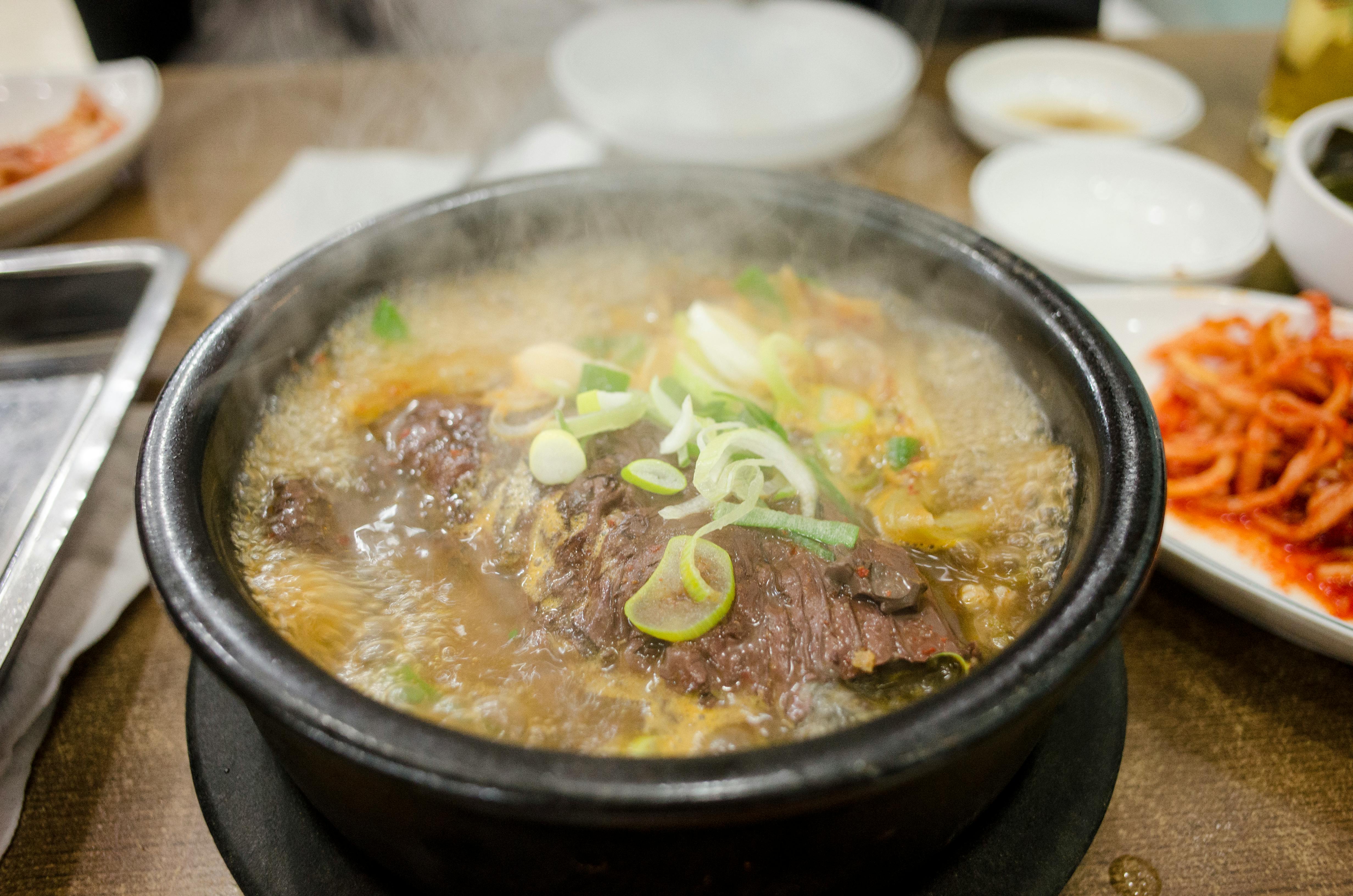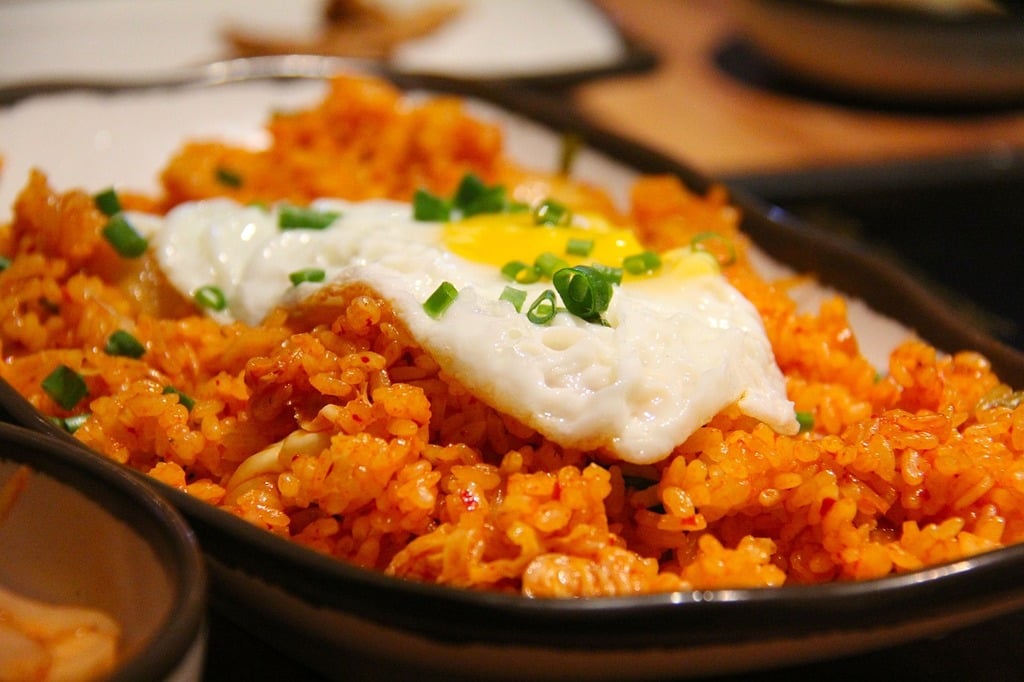Traditional South Korean Food Recipes And Cultural Significance
Traditional South Korean Food Recipes And Cultural Significance like kimchi and bibimbap while uncovering their rich cultural significance. South Korea is globally recognized for its vibrant culinary culture, deeply rooted in traditions passed down for centuries. Traditional Korean food is more than just sustenance; it embodies the country’s history, social values, and connection to nature. This article delves into popular South Korean recipes and explores their cultural significance.
The Essence of Korean Cuisine
Traditional South Korean Food Recipes And Cultural Significance is a harmonious blend of flavors, colors, and textures. Its foundational philosophy revolves around the “Yin and Yang” balance, which aims to create harmony between different ingredients and their nutritional properties. Whether it’s the tangy spiciness of kimchi or the hearty flavors of bibimbap, every dish tells a story about the nation’s history and traditions.
Top Traditional South Korean Dishes
1. Kimchi (김치)
- What it is: A fermented vegetable dish, typically made with napa cabbage and radishes.
- Cultural Significance: Kimchi is more than a side dish; it symbolizes Korea’s agricultural roots and the value of preservation. It reflects adaptability, as Koreans historically fermented food to survive harsh winters.
- Recipe Highlights: Napa cabbage, red pepper flakes, garlic, ginger, and fish sauce are mixed and left to ferment for weeks, resulting in its distinct tangy and spicy flavor.
2. Bibimbap (비빔밥)
- What it is: A colorful rice bowl topped with assorted vegetables, meat, and a fried egg, served with gochujang (spicy red pepper paste).
- Cultural Significance: Bibimbap represents the idea of unity in diversity, combining multiple ingredients into one harmonious dish. Historically, it was a communal meal for families to enjoy together.
- Recipe Highlights: Vegetables like spinach, carrots, and mushrooms are sautéed and arranged neatly on rice, topped with beef, egg, and a dollop of gochujang.
3. Bulgogi (불고기)
- What it is: Thinly sliced marinated beef, grilled or stir-fried.
- Cultural Significance: Bulgogi is often reserved for special occasions, symbolizing hospitality and celebration. The dish showcases Korea’s mastery of seasoning and meat preparation.
- Recipe Highlights: Soy sauce, sesame oil, garlic, sugar, and pear juice form the marinade, giving the meat its sweet and savory flavor.
4. Tteokbokki (떡볶이)
- What it is: Chewy rice cakes cooked in a spicy and sweet red chili sauce.
- Cultural Significance: Tteokbokki is a popular street food that connects modern Korean life with historical palaces, as it originated as a royal court dish.
- Recipe Highlights: Rice cakes are simmered in a sauce made of gochujang, sugar, and soy sauce, often garnished with green onions and boiled eggs.
5. Samgyetang (삼계탕)
- What it is: A nourishing soup made with a whole young chicken stuffed with rice, garlic, and ginseng.
- Cultural Significance: Traditionally consumed during the hot summer, this dish embodies the Korean belief in “fighting heat with heat” to restore energy.
- Recipe Highlights: The chicken is slow-cooked with jujubes, chestnuts, and ginseng, creating a hearty and health-boosting broth.
Cultural Significance of Food in South Korea
- Symbol of Unity
Meals are a communal activity in South Korea, emphasizing togetherness. Sharing dishes like kimchi or stews strengthens bonds among family and friends. - Respect for Nature
Korean cuisine is closely tied to the seasons, utilizing fresh, local ingredients. This respect for nature reflects the country’s agricultural heritage. - Celebration of Tradition
Dishes like tteok (rice cakes) are integral to Korean festivals and rituals, symbolizing prosperity and gratitude. - Balance and Health
Many traditional recipes prioritize balance in flavors and nutrients, aligning with Korea’s holistic approach to health and well-being.
Why South Korean Food is Famous
South Korean food has gained international fame due to its unique flavors, health benefits, and cultural depth. The global rise of K-pop and K-dramas has further propelled Korean dishes onto the world stage, making delicacies like kimchi and bulgogi household names. Additionally, the cuisine’s emphasis on fermentation and fresh ingredients appeals to modern health-conscious eaters.
People Also Ask
1. What is the cultural significance of food in Korea?
Food in Korea reflects communal values, respect for nature, and the importance of preserving traditions. Shared meals symbolize unity and family togetherness.
2. What is South Korea’s traditional food?
Some iconic traditional foods include kimchi, bibimbap, bulgogi, and samgyetang.
3. What is important in South Korean culture?
Respect for elders, family unity, and harmony are central to South Korean culture.
4. Why is South Korean food famous?
The global appeal of Korean food lies in its bold flavors, nutritional value, and cultural significance. Media exposure through K-pop and K-dramas has amplified its popularity.
5. Is Korean cuisine suitable for vegetarians?
Yes, many dishes like bibimbap and japchae can be made vegetarian by omitting meat and using plant-based ingredients.
Conclusion
Traditional South Korean Food Recipes And Cultural Significance is a beautiful reflection of the nation’s history, values, and innovative spirit. Each dish, steeped in cultural significance, offers not only a culinary experience but also a glimpse into Korea’s soul. As Korean cuisine continues to charm global audiences, it reminds us of the timeless connection between food and culture.
Read The Article Click The Link: Natural Remedies For Anxiety And Stress Relief








Post Comment